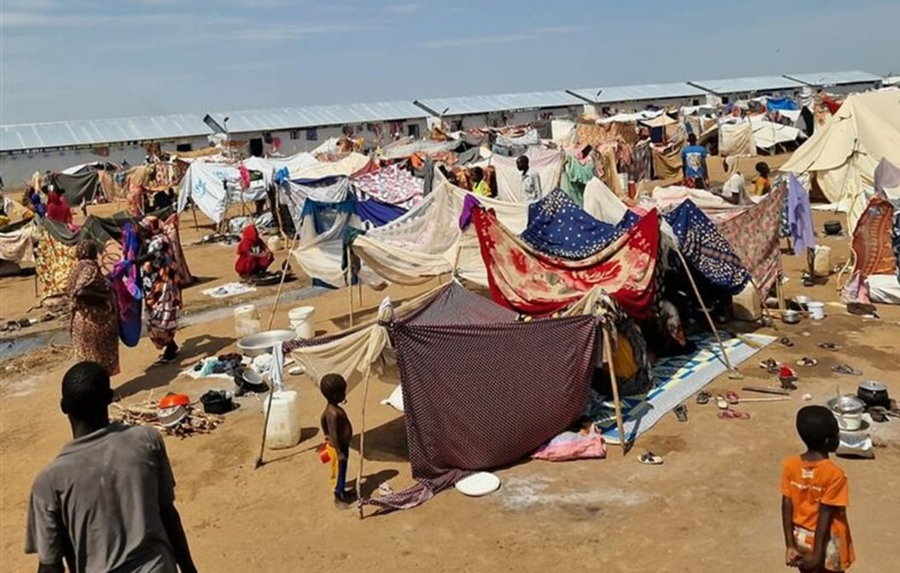
Oxfam: Refugees in South Sudan at Risk of Cholera and Food Shortages
moatinoon
The charity organization Oxfam has warned of the spread of cholera and food shortages among those fleeing the Sudanese conflict in the transit centers in South Sudan. It called for an urgent 7 million to intensify its operations and reach 400,000 people with life-saving food, clean water, and sanitation.
Over half a million people have flowed out of Sudan seeking refuge in South Sudan, now the second-largest host for Sudanese refugees and returnees after Chad. Since the outbreak of war in Sudan last April, Sudanese have sought security in the six neighboring countries.
In a statement on Thursday, the organization stated that the Renk crossing in the Upper Nile State of South Sudan, at the border town with Sudan, is overcrowded, with three times its capacity, facing a severe shortage of clean water and sanitation. More than 300 people share one water tap.
The statement explained, "Currently, over 15,000 people are staying in two centers in Renk designed to host only 4,750 people, while another 5,000 people are staying in the open without any clean water or proper sanitation. Rainfall, water scarcity, and sanitation shortages will lead to an increase in disease cases." It noted that every 100 people currently share one toilet. It reminded that South Sudan had recorded 1,027 cases of cholera before the current conflict in Sudan.
Dr. Maningi Mangondo, Oxfams Country Director in South Sudan, said, "I have just returned from Renk, where people are packed into shelters in horrific conditions. Many have to queue for hours just to use clean water or a toilet. Without an immediate injection of funds, the situation will explode into a full-blown catastrophe, leaving many vulnerable to disease and hunger. The upcoming rainy season in April will cut off major roads, hindering vital aid and increasing restrictions on transporting people to shelters.
More than 80% of South Sudans population – four out of every five people – is in desperate need of humanitarian assistance. Intersecting crises, including five years of flooding and conflicts in some parts of the country, have destroyed the lives of millions of people and their livelihoods.
Bibiana Peter, a mother of five who fled her home in Sudan and now lives in the Renk transit center, said, "The hunger is unbearable. My children eat only once a day if they are lucky. Their meal is a small bowl of lentils throughout the day, and I watch them suffer from malnutrition. I need to trek deep into the forest to get firewood, facing multiple risks like snakes and the danger of being attacked. If Im lucky, I sell the firewood to buy a little food, and if Im not lucky, we sleep hungry and exposed, leading to diseases and insecurity.
The upcoming lean season (April to July 2024) will force food stocks to reach their lowest levels, worsening the already dire situation for the host community. Over 7 million people in South Sudan are facing severe hunger, including 79,000 people facing catastrophic levels of hunger. This number has increased by 22%, while the number of people facing catastrophic hunger has doubled.
Despite the significant increase in the number of people fleeing the conflict in Sudan and the worsening humanitarian crisis, funding has diminished to an unprecedented level. The UNs appeal for South Sudan in 2023 was halved compared to previous years. Since the beginning of this year, less than 4% of the UNs 1.79 billion appeal has been raised. This low level of funding has significantly curtailed humanitarian efforts.
"With major global crises grabbing attention, the crisis in South Sudan has become forgotten. But the world should not turn a blind eye. We are racing against time, but funding cuts at this time are draining our ability to the maximum and are a recipe for disaster. Manngi added: "Every day of delay in taking action means irreparable harm to people who have already suffered for years from destruction and deprivation."

